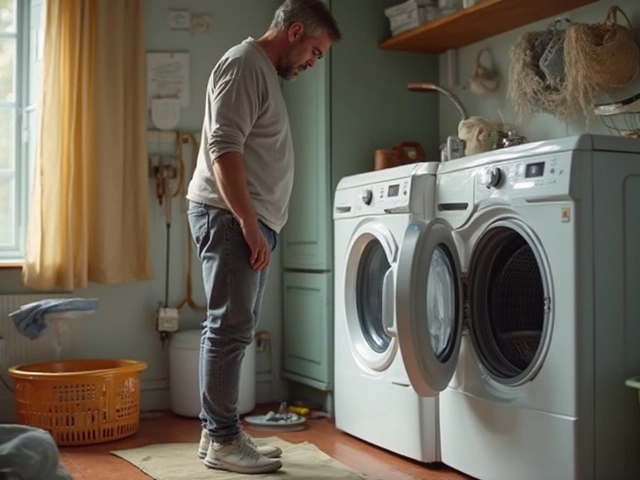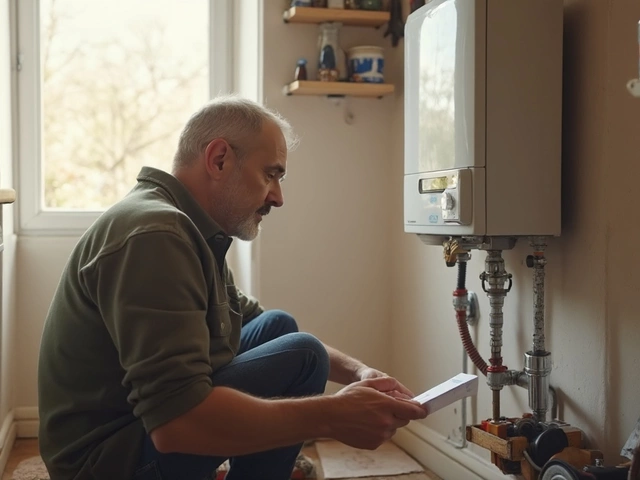If your kitchen fan smells bad, rattles, or just isn’t pulling air like it used to, a good clean can fix it fast. You don’t need a fancy service – most of the work can be done with a screwdriver, some soap, and a bit of patience.
Before you start, pull together a few basics: a flat‑head screwdriver, a soft brush or old toothbrush, a bucket of warm soapy water, a cloth, and a vacuum with a brush attachment. If you have a drop cloth, lay it down to catch any grime.
Turn off the fan at the switch and unplug it from the wall. Safety first – you don’t want any surprise sparks while you’re pulling the housing off.
1. **Remove the cover** – Most extractor fans have a removable grille. Unscrew it gently and set the screws aside. The grille often catches most of the grease, so give it a good soak in the soapy water.
2. **Clean the fan blades** – The blades are usually metal and can get coated with oil from cooking. Use the toothbrush dipped in soapy water to scrub each blade. If the build‑up is thick, soak the blades for a few minutes, then wipe clean.
3. **Vacuum the motor housing** – With the brush attachment, pull out dust and loose debris from the motor area. Be careful not to bend any wires. This step helps the motor stay cool and run longer.
4. **Rinse and dry** – After scrubbing, rinse the grille and blades with clean water. Let everything dry completely – a dry cloth can speed up the process, or let it air dry for 10‑15 minutes.
5. **Re‑assemble** – Slip the blades back into place, replace the grille, tighten the screws, and plug the fan back in. Turn it on and listen – you should hear a smoother, quieter flow.
If the fan still feels weak after cleaning, the motor might be wearing out or the duct could be clogged further down. That’s when a professional, like Bognor Regis Appliance Repair Experts, can inspect the internal wiring or replace the motor.
**Pro tip:** Do a quick clean every 3‑4 months if you cook a lot, and a deeper clean twice a year. Regular maintenance keeps the fan efficient and helps you avoid costly repairs later.
**When to call a pro:**
Keeping your extractor fan clean isn’t just about fresh smells – it also improves indoor air quality and reduces the risk of mold forming in your kitchen ceiling. So grab that screwdriver, follow these steps, and enjoy a quieter, healthier cooking space.

Extractor fans are a lifesaver when it comes to clearing out steam, smoke, and nasty odors, but many people forget they actually need a little love now and then. This article cracks open the question of whether extractor fans need maintenance, and if so, what kind and how often. We'll cover quick tips, warning signs, and busted myths around fan care. Get the straightforward facts (and a few surprises) about keeping your fan working its best. No nonsense, just super practical info you can use right now.

Is your hot water heater suddenly not working? Here’s what can go wrong, how to spot the problem fast, and pro tips to get hot water back right away.

Fixing an electric stove might seem daunting, but many common issues are surprisingly manageable with a bit of know-how. From understanding why the burners aren't heating to recognizing if a problem needs professional attention, this article sheds light on various aspects of electric stove repair. Whether you're dealing with strange noises, faulty wiring, or a completely inoperative oven, we explore what’s usually repairable and what might require a replacement. With practical tips, learn to troubleshoot and potentially save on costly service calls.

Discover if electric hobs can be fixed, cost breakdowns, DIY steps, safety tips, and when to replace. A practical guide for UK homeowners.

Find out why your tumble dryer isn't spinning and learn step-by-step fixes for common dryer problems. Stay informed with practical tips and real solutions.

Thinking about handling your own boiler service? Get the truth about what you can and can’t do, why safety matters, and which tasks are okay for homeowners. This article covers legal restrictions, common mistakes to avoid, and practical tips for everyday boiler care. Learn how to spot problems early and when it's really time to call a pro. Save yourself headaches, money, and maybe even a major disaster by knowing the facts.